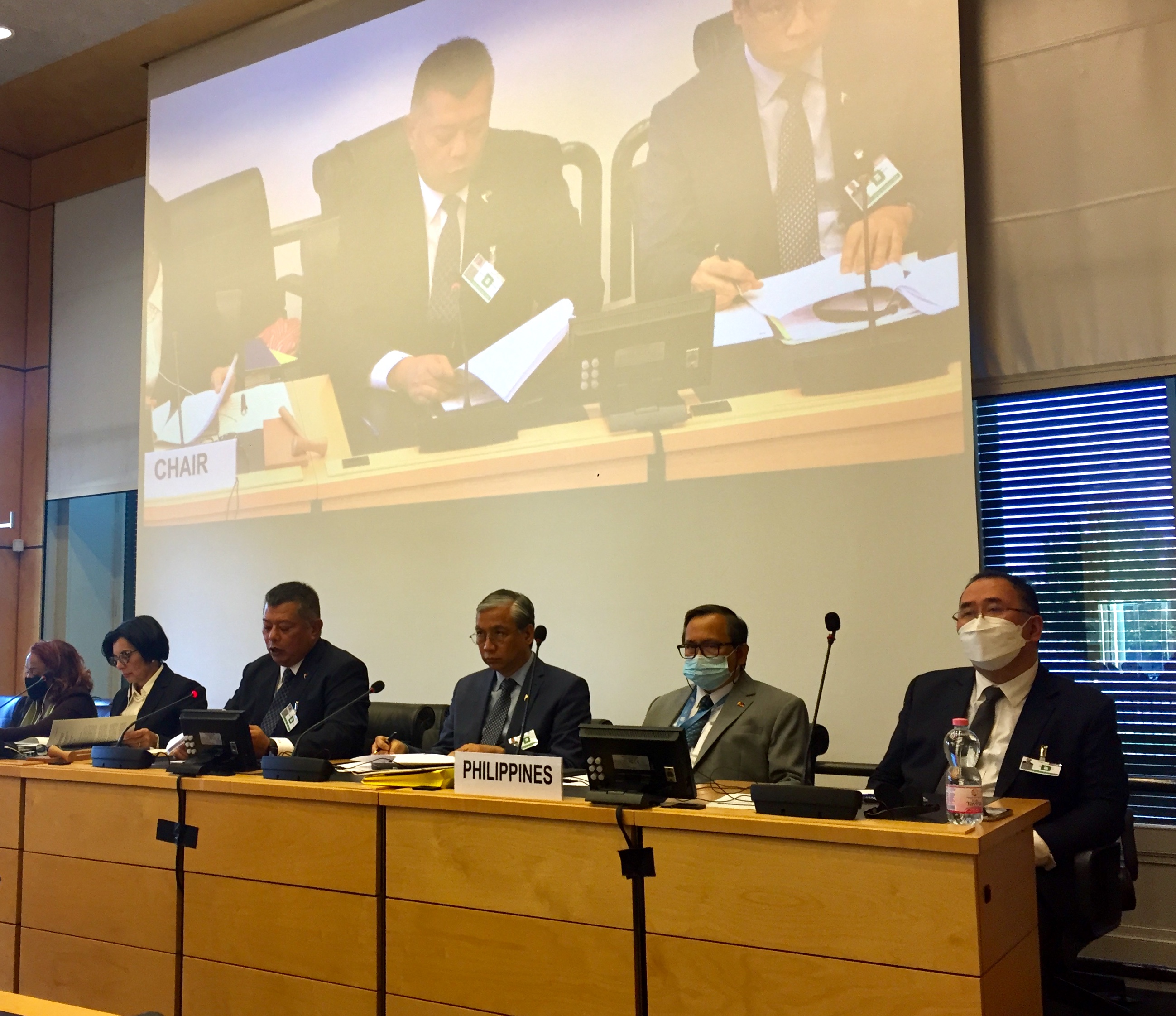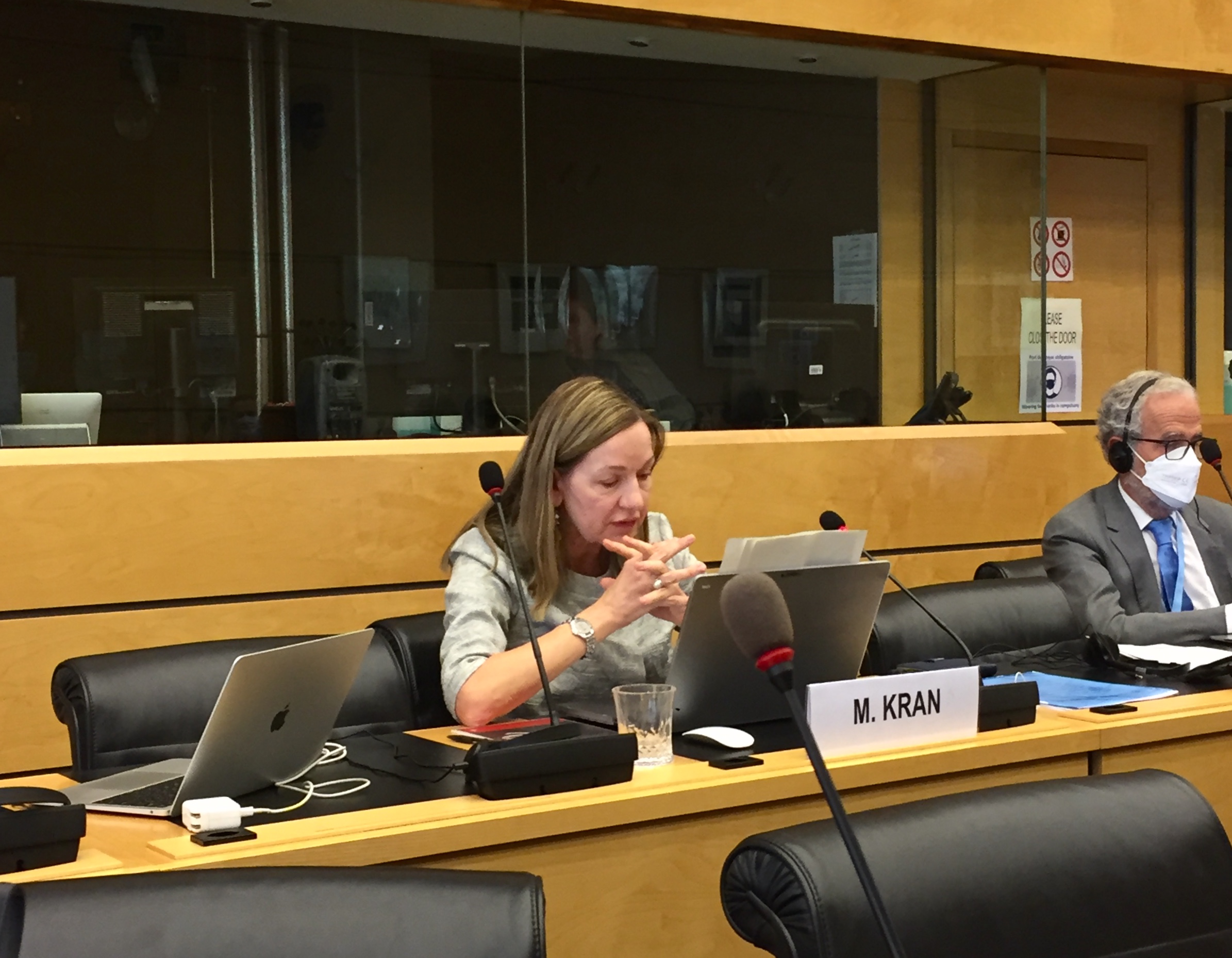Extrajudicial killings during anti drug operations in the Philippines concern the Human Rights Committee
Published on 25 Oct 2022, 10:53 AM
Human Rights Committee considered the fifth periodic report of the Philippines during its 136th session
 The Human Rights Committee reviews the Philippines’s fifth report
The Human Rights Committee reviews the Philippines’s fifth report
On October 10 and 11, 2022, the Human Rights Committee considered the fifth periodic report of the Philippines during its 136th session. The State delegation was led by the Secretary of Justice, Mr. Jesus Crispin Remulla, who gave an opening statement mentioning the general elections held in the Philippines in May 2022 and the new government’s reforms of justice mechanisms.
During the dialogue, the most salient issues included the State’s war on drugs and extrajudicial killings resulting from the anti illegal drug campaigns, overcrowding in prisons and detention centers, and the intended reinstatement of the death penalty. The withdrawal of the Philippines from the International Criminal Court that took effect in 2019 was also touched upon.
Anti illegal drugs campaigns and the right to life
Committee members questioned the State delegation about the impunity and the lack of accountability of police officers who violated human rights standards during the State’s anti drugs operations. The Philippines News Agency has reported over 6,000 extrajudicial killings linked to the “war on drugs”, including the killing of over 100 children. The drug watchlist was said to be largely based on unsubstantiated information, and the Committee asked whether the Philippines intended to discontinue it.
The State delegation replied that a referral system had been established for drug users in need of intervention. Moreover, guidelines for persons in police custody had been developed to raise the awareness of custodial officers about the rights of the detainees. Lastly, the delegation mentioned that deaths resulting from police operations had been fully investigated and those responsible were dismissed, demoted or suspended.
Poor conditions of the prison system
Another issue was the overcrowding in prisons and detention centers, with a 400% rate in some areas, whereby Committee members asked about possible alternative measures to detention. The State delegation acknowledged the problem and said that it was particularly concerned about the New Bilibid Prison and the Correctional Institution for Women. As measures of deterrence, the delegation mentioned a reform program being advocated for, which included the regionalization of jails and the separation of certain prisoners into a maximum security prison in the island of Mindoro. The delegation also claimed that torture was certainly not a State policy
Reinstatement of the death penalty
 Marcia Kran intervening in the review of the Human Rights Committee of the Philippines
Marcia Kran intervening in the review of the Human Rights Committee of the Philippines
Coinciding with the 19th World Day Against the Death Penalty, a Committee member, Marcia Kran asked the State delegation about its intended reinstatement of the death penalty. Despite its abolishment in 2006, lawmakers have introduced around 24 bills, the majority targeting drug offenders.
Watch again the dialogue with the Committee here (part one) and here (part two).
Recommendations of the Human Rights Committee
Concluding Observations on the Philippines fifth periodic report were released on 3 November 2022. The State party is requested to provide, by 2025, information on the implementation of the following recommendations:
Extrajudicial killings
The Committee urges the State party to put an end to extrajudicial killings of suspected drug offenders and users. In doing so, it should:
- (a) Take steps to replace an exclusively punitive approach to drug control with an approach fully in line with the Covenant;
- (b) Ensure that high-level officials refrain from inciting violence and extrajudicial killings, especially of suspects of drug use or trade;
- (c) Abolish the use of “drug watch lists” of individuals suspected of drug use or trade and the practice of “Oplan Tokhang”
- (d) Redouble its efforts to promptly, independently and thoroughly investigate all allegations of extrajudicial killings, bring perpetrators, including law enforcement officials, to justice;
- (e) Strengthen its accountability efforts, including through establishing an adequately resourced independent accountability mechanism;
- (f) Provide victims and their relatives with full redress, including compensation and appropriate support services;
- (g) Refrain from any acts of harassment and intimidation against those who seek justice for victims of extrajudicial killings
- (h) Provide law enforcement officials with regular and appropriate training on the use of force
- (i) Strengthen its cooperation with the international human rights mechanisms as well as the ongoing investigations by the International Criminal Court.
Conditions of detention
The State party should intensify its efforts to ensure that the conditions of detention are in full compliance with relevant international human rights standards, including the Nelson Mandela Rules. It should, in particular:
- (a) Take immediate measures to significantly reduce overcrowding in prisons and police detention facilities, including through alternatives to imprisonment;
- (b) Intensify its efforts to improve the conditions of detention and ensure adequate access to food, clean water and health care for persons held in all places of deprivation of liberty;
- (c) Ensure that women in detention, particularly those who are pregnant or have children, have adequate access to medical care and other necessary services that meet their specific needs.
Freedom of expression
The State party should take immediate measures to ensure that everyone can freely exercise the right to freedom of expression, and that any restrictions comply with the requirements of article 19 (3) of the Covenant. The State party should:
- (a) Refrain from prosecuting and imprisoning journalists, media workers and other civil society actors as a means of deterring or discouraging them from freely expressing their opinions;
- (b) Effectively prevent acts of harassment, intimidation and attacks against journalists, media workers, human rights defenders and other civil society actors to ensure that they are free to carry out their work without fear of violence or reprisals;
- (c) Conduct prompt, effective and impartial investigations into allegations of threats or violence against journalists, media workers, and other civil society actors and of cyberattacks against media outlets, bring the perpetrators to justice and provide victims with effective remedies, including adequate compensation;
- (d) Review and bring the Anti-False Content Bill of 2019 and other bills concerning false information into line with article 19 of the Covenant;
- (e) Decriminalize defamation, bearing in mind that imprisonment is never an appropriate penalty for defamation.
Here you can find all the recommendations given by the Committee in the Concluding Observations.
The follow-up report of the Philippines on the implementation of the recommendations is due in 2025. The next list of issues will be adopted in 2028, and the next periodic report is due in 2029.
 The Human Rights Committee reviews the Philippines’s fifth report
The Human Rights Committee reviews the Philippines’s fifth report


